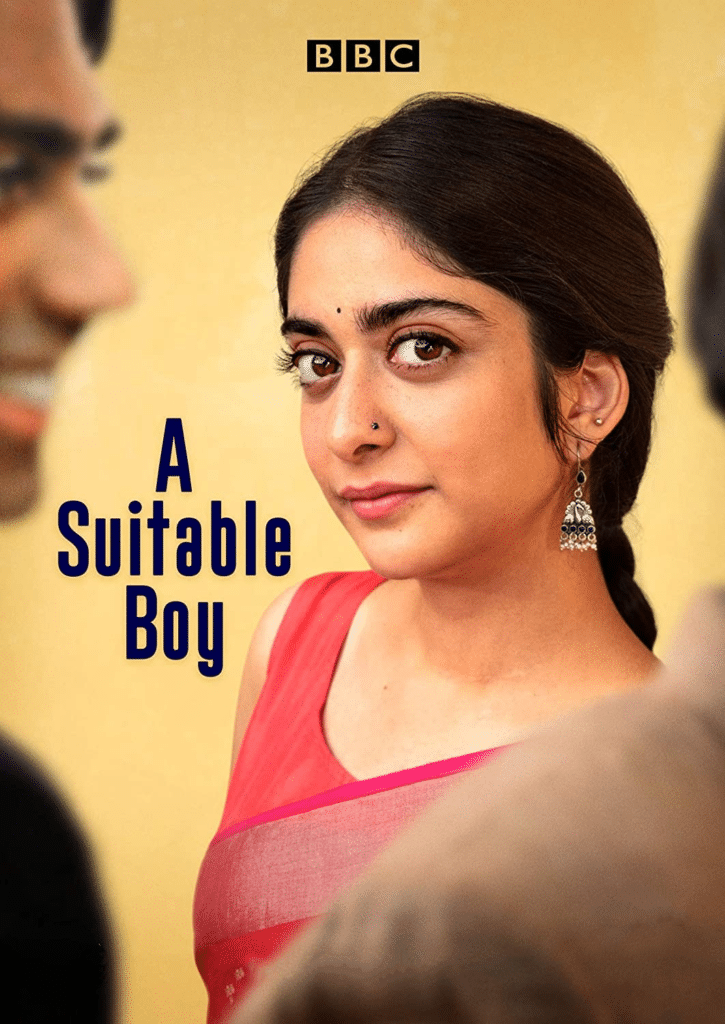
BLUF: Set in India in the early 1950s, this six-part BBC Series is based on the intricate, interconnected lives of Lata and Mann; both young and idealistic, with aspirations that are woven into the aspirations of their families
THE MEAT AND THE POTATOES
A Suitable Boy, Vikram Seth’s epic 1700 page novel, has found its essence in Mira Nair’s treatment of this complicated, textured and culturally sensitive drama of impressive proportions.
IN THE ZONE
Lata, the protagonist must choose between her three suitors and be blessed by her mother Rupa. The quintessential dilemma for Indian women of times since then, who despite being opinionated, astute, and frantically trying to experience as much of the world as possible, also looks at approval from her quite intolerable and interfering mother who wants to get her daughter married off to a boy of her own choice.
Her options are History student Kabir Durrani (Danesh Razvi), for whom Lata feels great desire, but whose religious identity becomes an obstacle to their love. Amit (Mikhail Sen), who is sophisticated and modern, but who is instinctively disapproved by Rupa since he is a cousin of Lata’s sister-in-law Meenakshi,
And ultimately, the shoe manufacturer Harish (Namit Das), Rupa’s own choice for Lata, and a complete stranger and does not seem to have the sophistication or the charm of the other two suitors but has the approval of Lata’s mother Rupa.
Late must eventually choose between these three suitors in a story set in a fictional city of Brahmpur right after India’s independence from the British
Tensions between Muslims and Hindus run high in that period right after the separation of Pakistan from India and the story oscillates between Bharampur to the bustling, culturally rich Calcutta to the rudimentary village of Radhia.
19-year-old Lata Mehra (Tanya Maniktala), her older sister and confidant Savita (Rasika Dugal) and Rupa (Mahira Kakkar) , her eldest son Arun’s (Vivek Gomber), his stunning wife Meenakshi (Shahana Goswami), Rupa’s other son Varun (Vivaan Shah) are all connected through Savita to the fortunes and misfortunes to Savita’s political family including patriarch Mahesh (Ram Kapoor), who serves in government as the Home Minister, his wife (Geeta Agrawal Sharma), his hotheaded youngest son Maan (Ishaan Khattar). The relationship of the Kapoors to the Muslim Nawab (Aamir Bashir), who worries about increasing animosity toward his fellow believers, and whose son Firoz Ali Khan (Shubham Saraf) who is Maan’s best friend. The courtesan Saeeda Bai (Tabu, working again with Nair after “The Namesake”), even when belittled by the society for their beliefs about her sex life but venerated for her vocal prowess.
FWAR
The cast is impeccable. The cinematography, music score, colors, and choice of visuals weave the story perfectly.
Vikram Seth’s characters come alive in the colors, images, and in flesh and blood like people who really exist in those times.
Maniktala is a natural, agreeable looking actress, and her performance is quite spontaneous. Her efforts to please her mother while trying to figure her own will is also reflected in the parallel story of Mann, played by the immensely talented Khatter.
Ironically, family approval and the role of parents’ expectations in the lives of their children are still as relevant for choices Indians to make more than seven decades later as well.
Kakkar, whose character is almost a comical extension of a nosey, controlling Indian aunty does justice to her character without making it hateful.
Tabu, is the center of the attention of the series. You almost want to protect her as she projects the vulnerability in one scene and the silent strength of a woman in the other. The script from Davies is precious in balancing the language, the culture, the times, and the sensitivity of the complex characters, so well developed and portrayed.
Nair is skillful in keeping the narrative from roaming into the crevices of political, religious, ideologies, and gendered ravines that the story so dexterously skirts around.
WHAT WE LOVED
The cast, the writing, great dialogues the technical experience of the storytelling.
WHAT WE MISSED
The earlier episodes were a bit dragged.




